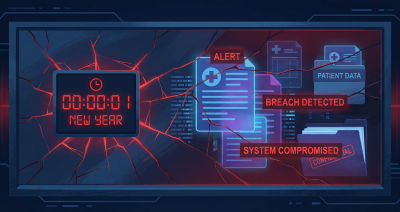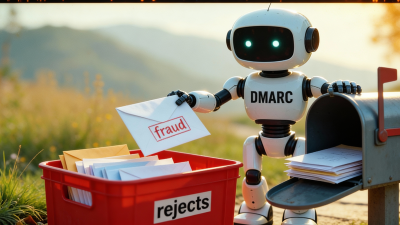The Trillion dollar industry
At the time of writing, the Waikato DHB cyber-attack is ongoing. The government is refusing to pay the ransom as a point of principle, and it looks like every possible tool at their disposal is being used to try to recover the situation.
Should they just pay the ransom? Or should the government go further and make it illegal to pay ransoms in New Zealand? That’s the question that Minister Kris Faafoi is having to assess at the moment. DHB attack: Why Justice Minister Kris Faafoi won’t make it illegal to pay a cyber-ransom – NZ Herald
Cyber crime is big business. We’ve called it organised crime in previous articles and we’re happy to stick with that. These organisations recruit the best and brightest out of the top universities, and give them both the latest tools and time to wreak havoc. Their recruits are paid astronomical sums to work for them, overcoming any moral objections with immorally large pay checks. These paychecks are funded by the proceeds of previous hacks. Every time they are paid, their war chest is strengthened. For example, we recently saw the Colonial Pipeline in the eastern US get hacked for 75 bitcoins (just under US$4M) which went to a criminal group called ‘Darkside”.



So, will cutting off payments stop their attacks by removing the incentive?
These criminals are smart and highly motivated. They seem to have no conscience but plenty of greed. Waikato is not only the hospital being brought down – there was a huge wave of hospital attacks in the US in October, just a few months ago – Several hospitals targeted in new wave of ransomware attacks – CNNPolitics.
I don’t know how Waikato DHB got infected, but the rumour is that it was from phishing attacks onto machines that weren’t fully patched up to date. We don’t know if that is true, but it is a common attack vector. Once a hacker gets into a system, they often hold back and try to dig further looking for more vulnerabilities they can exploit. The more damage they can cause, the more ransom they can demand, so they will often use one vulnerability to find the next, and so on until they finally have enough to bring the house down.
Security is all about layers. There is NO way to prevent attacks, and it is impossible to guarantee that any system is invulnerable. We saw that with the recent Hafnium attack where a vulnerability was exploited before patches were available to block it. But the more layers of security, the harder you make it, and you reduce the scope of any harm.
Today, even if you have the best backups and can recover the system, the hackers then threaten to release the data you hold to media or competitors. In the case of the Waikato DHB, it is being reported that personal data is being released to media by the hackers to increase pressure, even as they fail to stand their systems up.
As to paying the ransom, I suspect your perspective changes when your business, your job or livelihood is threatened. Not an easy decision and hopefully one we can avoid by being paranoid.
The best solution we can recommend is to check your cyber insurance and to apply the best security you can reasonably afford, which should be more than you had last year. Expect it to be more again next year as new tools and new threats emerge. Consider managed security solutions like our KARE Plans.
We don’t know where this will end, or if it will end, but let’s hope so. It is such a drain on our resources and holds us back from investing in tools that make us more productive.
Webinar Replay: Decoding SMB1001. Understanding Your Cybersecurity Maturity
Cybersecurity certification doesn't have to be complex or overwhelming. Understanding SMB1001: What is SMB1001 and why it was created specifically for organisations like yours The five certification levels (Bronze to Diamond) and what each means for your organisation...
Beyond Endpoint Protection – What is ITDR?
Your Microsoft 365 environment is where your business happens. It's also where attackers want to be. Most New Zealand businesses have invested in endpoint protection such as antivirus, EDR, or even MDR, but are they leaving a critical attack surface completely...
Manage My Health Data Breach – What We’ve Heard
What New Zealand Businesses Need to Learn from 126,000 Compromised Patient Records New Zealand's largest patient information portal confirmed a major cyber security breach on New Year's Eve, with up to 126,000 users potentially affected. The Manage My Health incident...
URGENT ADVISORY: We’re seeing a significant increase in authentication attacks this Christmas
Significant Hacking Trend Over this 2025/26 Christmas and New Year period, our Kinetics KARE security monitoring has detected a significant increase in sophisticated authentication attacks targeting New Zealand businesses. KARE Foundation clients are protected and...
Your Customers Need to Trust Your Emails: Here’s How DMARC 2.0 Helps
Yet another IT acronym: "DMARC" DMARC stands for Domain-based Message Authentication, Reporting, and Conformance. It's an email authentication protocol that helps protect your domain from being used in email spoofing, phishing attacks, and other cyber...
Christmas is coming. But will you get a visit from Santa or from a grinchy hacker?
Protecting Yourself from Cyber Threats While on Holiday We're more vulnerable than normal to hackers at this time of year. Unfortunately, the hackers know it and tend to be more aggressive.In the rush up to Christmas, there's normally so much to do that we're all that...
Understanding Your Microsoft Secure Score: Why Your Percentage May Drop (While Your Security Improves)
Important Update for KARE Foundation Subscribers If you've noticed your Microsoft Secure Score percentage decreasing recently, don't be alarmed. Your security hasn't weakened. In fact, Microsoft is making significant enhancements that will ultimately make your...
2025 Q4: Cyber Landscape Update (are you still feeling lucky? New Zealand’s Cyber-threat landscape demands action)
Why This Brief Matters A cybercriminal only has to be lucky once. You have to be lucky every minute of every day. That remains the stark reality for kiwi businesses in Q4 2025. This isn't another dry technical report filled with acronyms and alerts. Kinetics has...
SpamGPT: When AI Becomes a Phishing Playbook—And How to Protect Your Business
For years, we've told businesses to watch for telltale phishing signs: poor grammar, suspicious sender addresses, generic greetings. But what happens when cybercriminals have access to the same sophisticated AI tools your marketing team uses—except weaponised...
The Rise of AI-Powered Ransomware
Unveiling a dark future: The First AI-Powered Ransomware In a groundbreaking discovery, researchers at ESET have uncovered what they believe to be the first known AI-powered ransomware strain, aptly named PromptLock. This sophisticated malware is not just a step...










